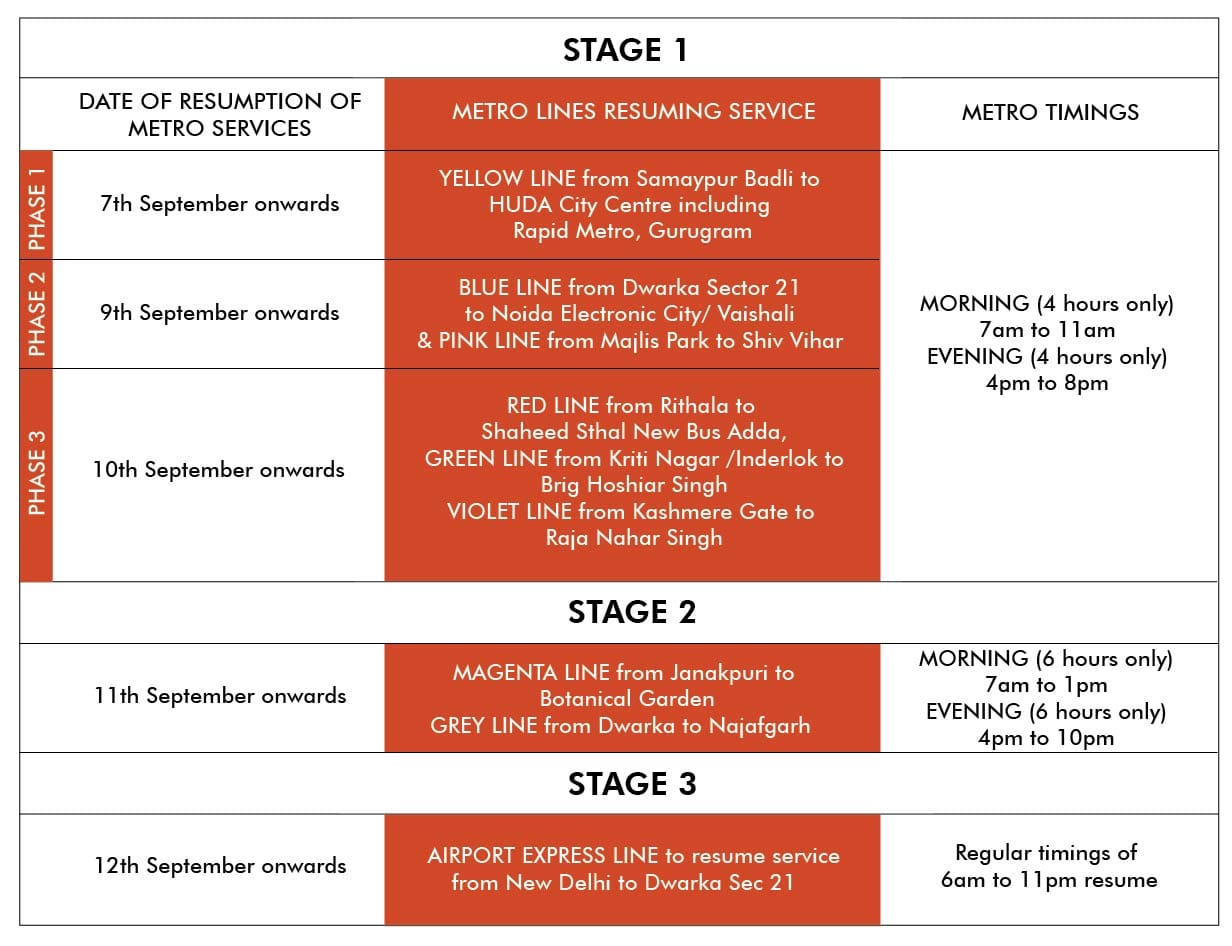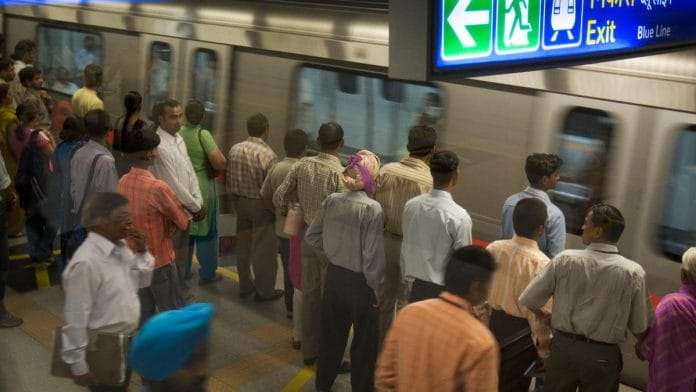New Delhi: After more than four months, Delhi’s Metro services will resume from Monday (7 September) in a phased manner, though metro stations in containment zones will remain closed.
Hardeep Singh Puri, the Union Minister of Housing and Urban Affairs, and Delhi Metro Rail Corporation (DMRC) Managing Director Mangu Singh released a detailed standard operating procedure (SOP) Wednesday.
According to the SOP, masks are mandatory for passengers and those without it won’t be allowed to board. Thermal screening will be carried out outside each station.
“Symptomatic persons will be directed to go to Covid care centres or a hospital to get themselves tested,” Puri said during the digital interaction. Metro rail corporations might also make arrangements for supply of masks at the station so passengers can buy and use.
The SOP was approved by the Ministry of Home Affairs, officials said, adding that in case congestions were witnessed at metro stations, the decision will be reviewed.
The SOPs will apply to other metro services when they resume operations too.
Also read: Only Delhi Metro’s success will prove if Kejriwal’s city can live with coronavirus
How metro services will resume
Starting 7 September, resumption of Delhi’s metro service will happen in three stages, with the first stage being split into three phases. Through these phases, more metro lines will open up, and by 12 September, all lines will be running.

The frequency of trains has been cut down in the initial phases of operations. Passengers will have to wait for 5-7 minutes at a station as opposed to the earlier average of 2.5 minutes.
Both inside the metro and at stations, red markers will indicate seating to ensure social distancing.
Timings of metro operations have been limited, with trains running between 7 am and 11am and 4pm and 8pm from 7 to 10 September.
On 11 September, the timings will increase to 7am to 11am and 4pm to 10pm, and on 12 September, the original timings of 7am to 11pm will resume.
Heating, ventilation and air-conditioning (HVAC) system will be used. Passengers are encouraged to use the Aarogya Setu app. The DMRC said cashless/online transactions will be the default mode, and encouraged people to use the metro smartcards instead of buying tokens.
“Provision of sanitisers will be made at entry into the stations for use by passengers. Sanitisation of all areas having human interface viz. equipment, train, working area, lift, escalators, handrail, AFC gate, toilets will be done at regular intervals,” said Puri.
A detailed information, education and communication (IEC) campaign is also being launched for passengers and staff through electronic/print/social media, poster, banner, hoarding, website etc. All metro rail corporations have been directed to maintain close liaison with state police and local administration for regulating crowds at the station and deal with contingencies.
With regards to penalties for passengers caught violating the guidelines, Puri said the process will be monitored through CCTV cameras.
“People taking this lightly or abusing the process or violating guidelines will not be allowed to board train and public announcements will be made on the mic,” he said, adding that the “naming and shaming” system will put pressure on the offender.
He went on to say that some decisions will have to be taken in real time depending on the situation.
Also read: Why Covid gives Delhi the perfect reason & chance to revamp its public transport system






